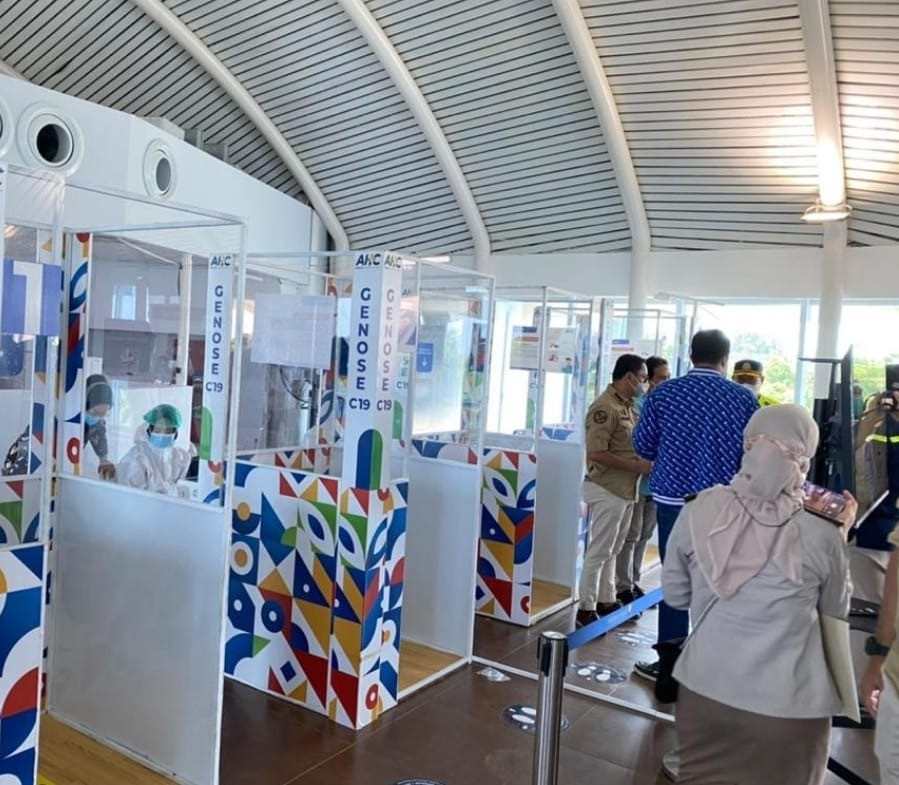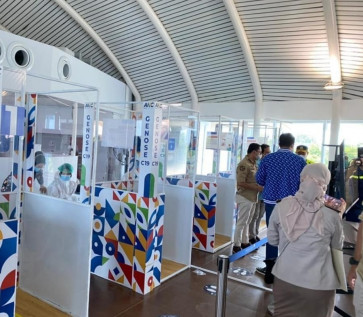Popular Reads
Top Results
Can't find what you're looking for?
View all search resultsPopular Reads
Top Results
Can't find what you're looking for?
View all search resultsDoubts linger over GeNose COVID-19 breathalyzer
GeNose, a coronavirus breathalyzer invented by Gadjah Mada University (UGM), is more widely used for traveling, tourism and other public activities because it is cheaper and offers faster results.
Change text size
Gift Premium Articles
to Anyone
G
eNose, a coronavirus breathalyzer invented by Gadjah Mada University (UGM), is getting more and more widely used for traveling, tourism and other public activities, like going to the movies, because it is cheaper and offers faster results than the gold standard polymerase chain reaction (PCR) test. But doubts still linger over its accuracy because of a lack of transparency in its development.
GeNose was developed by UGM associate professor of physics Kuwat Triyana and UGM pediatric clinician Dian Kesumapramudya Nurputra. It is based on an artificial-intelligence-powered sensory system that mimics the human nose to detect volatile organic compounds, which, according to its researchers, are specific to people with COVID-19, exhaled by a person into a plastic bag.
UGM researchers discovered the unique composition exhaled by COVID-19 patients after comparing breath samples of more than 600 people from April to August last year, about half of whom were coronavirus-positive at the time.
They then carried out diagnostic trials from October to December by comparing GeNose’s results with those of PCR tests, the gold standard for COVID-19 testing. The trials looked into 2,500 breath samples from 1,476 suspected COVID-19 outpatients at seven hospitals, as well as 523 office workers who were randomly sampled upon request from the Health Ministry’s independent reviewer team.
The UGM team found that GeNose had a sensitivity of 89-92 percent and specificity of 95-96 percent compared to PCR -- meaning that out of 100 people detected negative by GeNose, eight to 11 people could test positive using the PCR method, or false negatives. Meanwhile, out of 100 positives, four to five people might test negative using the PCR test, or false positives.
Costing US$0.7 to $1.7, GeNose tests are much cheaper than PCR and conventional rapid tests, and they can produce results in three minutes. But people must fast and not smoke for at least 30 to 60 minutes before breath sampling, while environmental factors, such as air saturation, can affect the results.


















